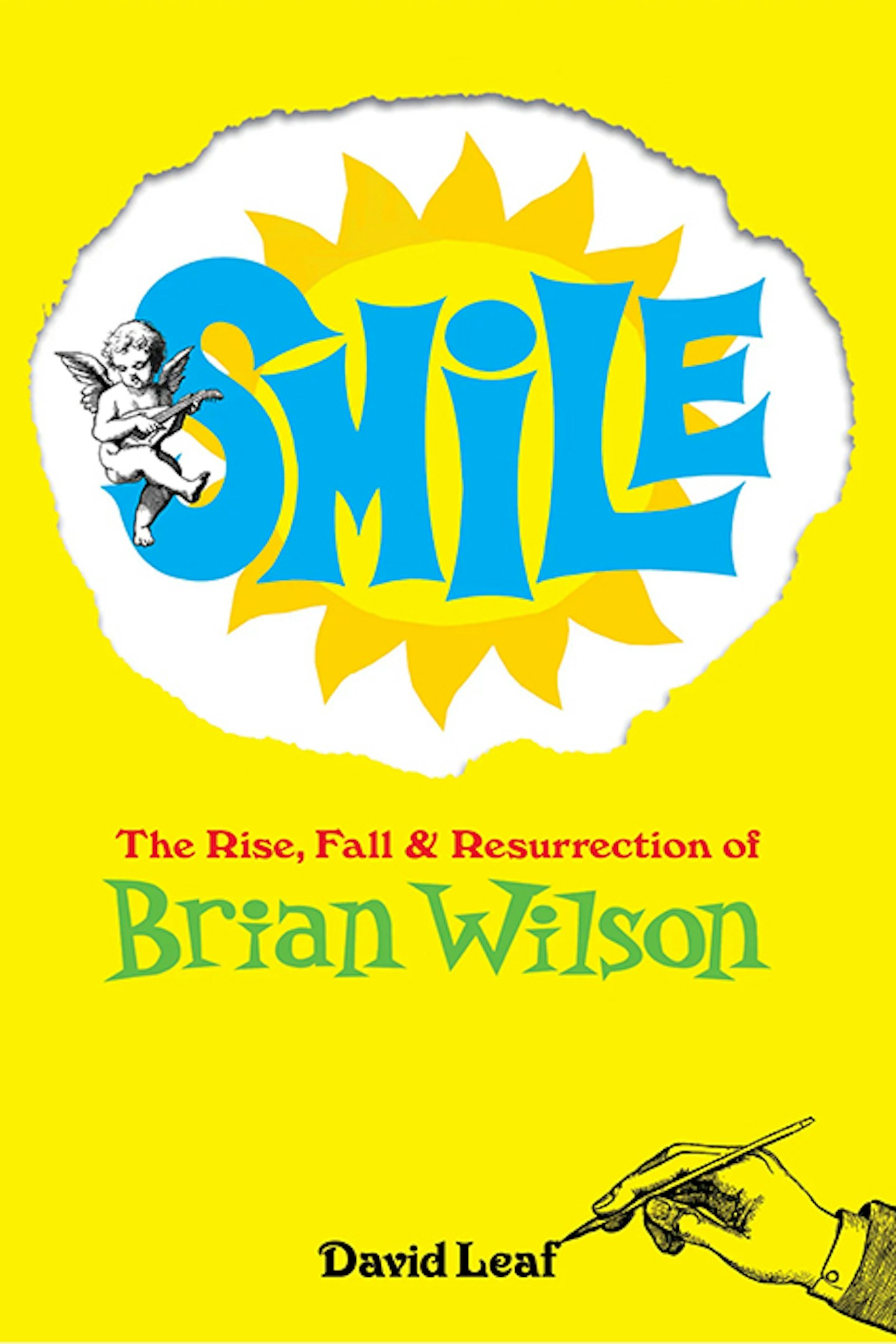SMiLE: The Rise, Fall, And Resurrection Of Brian Wilson
David Leaf
★★★★
OMNIBUS PRESS

“See, Debbie,” Eva Easton-Leaf tells a friend at the start of an essay in her husband’s oral history of Brian Wilson’s reconstruction of and through SMiLE, “you can love someone enough.” Easton-Leaf and her longtime friend and former roommate, Debbie Keil-Leavitt, are sharing a bottle of champagne, soon after the world premiere of Wilson’s 37-year-old “teenage symphony to god” in 2004. Keil-Leavitt was a steadfast confidant to Wilson during the ’70s, after he’d dropped SMiLE to save his family band from the alleged terror of his artistic ambition and vision. David Leaf was a Wilson devotee who married Keil-Leavitt’s roommate and spent decades wondering to Wilson, insistently if carefully, “What happened to SMiLE?” That little scene, then, is the culmination of a few dozen people’s love for Wilson, who stared down the most troubling period of his career to finally perform his masterpiece – with a lot of help from a lot of friends.
-
READ MORE: The Beach Boy's 50 Greatest Songs Ranked
SMiLE: The Rise, Fall, And Resurrection Of Brian Wilson is Leaf ’s obsessive oral history of that famous slow-motion triumph. Nearly 40 decades after his first Wilson biography, Leaf’s bank of sources is voluminous and mostly complete – from Brian Wilson’s childhood best friend to Carl Wilson’s first wife, from record label heads to the musicians that methodically helped Wilson reimagine SMiLE from mislaid studio scraps.
Leaf first told this particular story in 2004 with the documentary Beautiful Dreamer, a less-detailed chronicle of the path toward that first show. Two decades later, this book not only addresses the subsequent album version (and, briefly, the box set) but also its lingering legacy and legal squabbles. What’s more, Leaf repeatedly hands the pen to friends, fans, and fellow Wilson biographers, asking them for their own _SMiLE_story. The result is both generous in fact and spirit, leaving almost no detail unaddressed or laurel unawarded. This is, after all, the close of a quest that shaped Leaf ’s life as filmmaker, biographer, and Wilson confidant and champion.
However altruistic Leaf ’s approach can be, it does render a book that is repetitive. His twin senses of completion and inclusion mean that so many people revisit the same lines, whether praising Wilson’s genius (a word that appears three-dozen times here) or sharing how they found SMiLE, a tale that comes in approximately three varieties. It is a compendium of encounters and enthusiasms, then, with few filters or judgements. Still, the sharp memories and hilarious aphorisms of Van Dyke Parks and the musical insights of bandleader Darian Sahanaja make any repetition worthwhile. Never before has the picture around SMiLE been so complete.
“Nobody really does what they say they will,” writes Beach Boys archivist Howie Edelson in one of several prologues. He’s speaking specifically about his admiration for Leaf and his wherewithal in actually finding out what happened to SMiLE so long ago – and then doing everything he could to see it finally come to fruition. But the sentiment also applies to almost everyone in these pages, people who loved Wilson and his lost ark enough to help him do what he said he would do: construct his teenage symphony to God, even if it took him until his sixties.
What We Learned From SMiLE: The Rise, Fall, And Resurrection Of Brian Wilson:
-
At one point while writing SMiLE, Van Dyke Parks felt like he was in physical danger, presumably from other Beach Boys. “That’s when I left,” he says.
-
One bootleg version of SMiLE included a Miles Davis performance that many fans long thought was a Wilson composition.
-
Before the fourth Royal Festival Hall show, Paul McCartney showed up at Wilson’s door, playing ukulele; he then prayed with the band.
-
Sound engineer Richie Davis used nine vocal mikes to render the shows’ harmonies. “I kind of felt like a conductor of an orchestra,” he says.
SMiLE: The Rise, Fall, And Resurrection Of Brian Wilson is published April 3 by Omnibus Press.
ORDER: Amazon | Rough Trade | Waterstones
Get the definitive verdict on all the month's essential new albums, reissues, music books and films only in the latest issue of MOJO, on sale now. More info and to order a copy HERE!

Main photo: Michael Ochs/Getty
